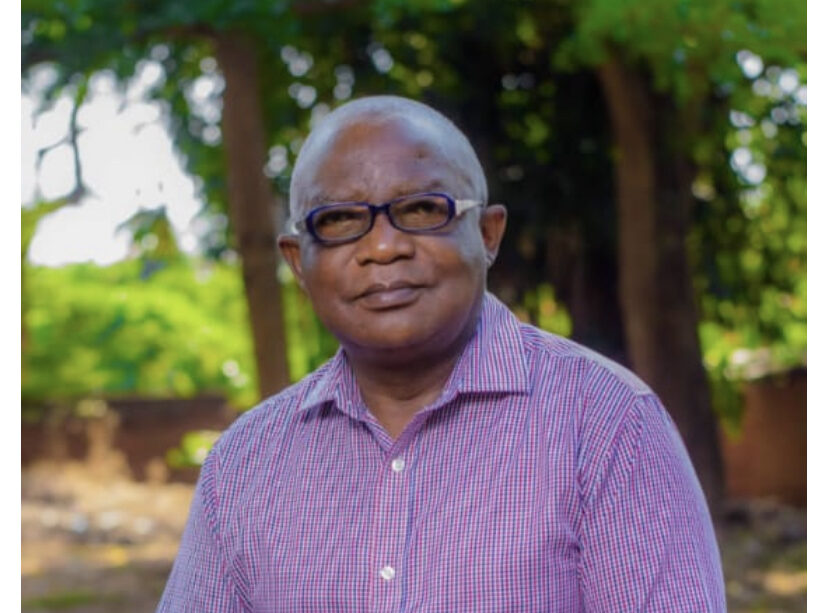
I am delighted to welcome you to the Orphan Care and Social Rehabilitation website. Orphan Care and Social Rehabilitation (OCSR), a local ministry based on James 1:27 (“Pure religion and undefiled before God and the Father is this, to visit the fatherless and widows in their affliction and to keep himself unspotted from the world”). As a founding director, I have witnessed the growth of OCSR in the past 3 decades. Established in May 1995, OCSR has supported over 1000 children, offering spiritual mentoring and assists with needed resources for the children to continue with their education.
OCSR also supports caregivers empowering these orphan-supporting guardians with vocational skills to start income-generating activities, to support their families with a steady income.
Activities
OCSR maintains two orphan care and support centres, one in Lilongwe and the other in Karonga. At both centres, care and support is provided on the basis of community care and support strategies which promote freedom of the orphans to identify with their peer siblings and youth, thereby eliminating stigma. Care and support focuses on training and counselling in life skills and behaviour change, supplementary nutrition for orphans at school, educational support, sports as an avenue towards prevention against contracting HIV, early childhood education, skills training, drama and music, and spiritual mentoring.
Achievements
Early Childhood Education: for children between the ages of 2 years and 7 years, as pre-primary education to orphaned and vulnerable children. Enrolment started with 30 children but now the enrolment had increased to a maximum of 150 children.
Educational Support: for children at primary and secondary schools. Children at primary schools are supported with scholastic materials such as notebooks, pens and pencils, rulers, and school uniforms to the very destitute. Children at secondary schools are supported with tuition fees, examination fees, a small library which they can access, and scholastic materials as with primary school children. More than 100 secondary school going children have been supported from first to fourth year, when they sit for “O”-Level examinations. Support has also been extended to those youth that had passed their examinations and went for tertiary education of their choice. Five youth have been supported to pursue courses in primary school teaching, secondary school teaching, rural development, and accounting. One of the trained teachers is also vision impaired, but a very dedicated teacher, he is now heading a non-governmental organisation representing the disabled at the national level.
Supplementary Nutrition: for children in the early childhood education class, primary schools, and secondary schools close to the centres. Children under early childhood education are given fortified porridge as breakfast and lunch before they go to their homes. Those at primary and secondary schools are given lunch after their classes. These meals are provided during week days, free. The centres feed close to 500 children every day. To most of the orphans the meal is the only one for the day. Some of the maize is grown by the organisation for this purpose.
Sports: the main centre, in Lilongwe, set up netball and soccer teams as one way of bringing the youth together. Apart from playing netball or soccer, they meet twice every week for training, counselling and spiritual mentoring. These teams have transformed the children to be more responsible since they have learned the importance of being united and the impacts of inter-/intra-relationships among themselves. Both teams participate in local leagues and their performance is excellent. The netball team is top of the local league while the soccer team is second and earmarked for promotion into a senior regional league. About 40 youth benefit from this initiative.
Drama and Music: the youth are encouraged to participate in drama and music as a means of delivering messages of effects of and prevention against HIV and AIDS to their fellow youth and the community at large.
Skills Training: has benefited the youth as well as the widows as capacity building towards income generation for the care and support of the households. Training has been provided in tailoring, knitting, crocheting, mushroom production, and chicken rearing. Tailoring has been taken up by many widows and youth such that close to 150 persons have received training. 25 widows have received training in knitting. The major constraint has been accessing funds to procure equipment to set themselves up. A few have managed to start their own businesses or get employed in tailoring shops. The desire is to have access to resources to buy their own machines and set up their own businesses. Instructors for training tailors have been identified from the graduates, and their performance is excellent. Some personal testimonies have been attached.
Linkage with Primary Schools: made specifically to involve school children in programmes of awareness about HIV and ADIS and its effects on people and families. The school children are involved in all the programmes at the main centre in Lilongwe, (sports, supplementary nutrition, counselling, spiritual mentoring, educational support) and also in activities at their schools. Activities at the schools include drama, music, recitals, counselling, and lectures.
Counselling: takes the form of topical open discussions as well as training on specific aspects of behaviour change. “The Journey of Life” is one training tool that has been used successfully in bringing awareness to the youth and widows in the needs of a person from birth to old age and how these are affected by the relationships and attitudes developed along the way. The tool tries to depict the value of life to the audience, and this has definitely had an effect on the youth and widows, changing their attitudes towards their own lives and those of others.
Looking Ahead
OCSR seeks to contribute effectively to the lives of orphans and destitute children in areas of need due to the loss of parents, that they grow into responsible citizens that would contribute towards national economic and social development.
